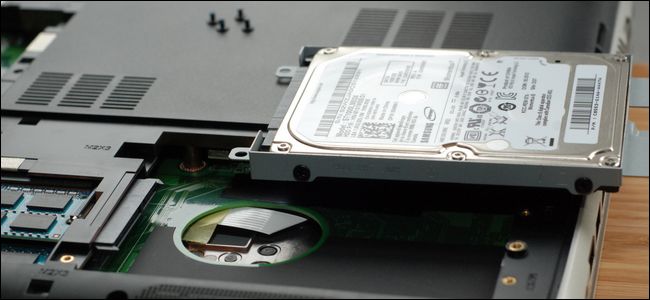Hard drive crashing is a common occurrence that can be avoided. The hard disk is destined to fail either sooner or later and you are required to have proper backup and restoration plans handy.
In case, the backup is missing or your backup plan fails, data recovery software will give you one more chance of restoring files back from the inaccessible or failed hard drive.
Below we go through the commonest reasons a hard drive may crash and how to deal with them in order to avoid data loss.
The best practice for any users is to always back up data on the cloud or on another external device.
This way when your hard drive crashes you will be ready. Hard drive crashes occur due to the following;
1. Firmware or manufacturer faults
This problem occurs mainly with the brand-new hard disk which prevents it from working properly.
It can happen even after a few days of purchasing and there are chances that the manufacturer had delivered the faulty disk.
In most cases, such a hard drive is delivered to a customer without having it tested out.
Whenever this occurs, the hard disk is undetectable or not recognized at all by the System or the system may fail to boot or hangs in the middle of the booting process.
A solution to this is to contact the hard disk manufacturer and claim your warranty.
2. Heat
A hard drive may crash when the laptop it’s is subjected to high temperatures.
It results from improper ventilation or faulty CPU fans which cause your system to heat up to its peak point and leads to the hard disk crash or severe damage to the computer hard drive that is irreversible.
This can be detected when fans are moving too slow or not at all, Clicking sounds or noise from the system hardware or Desktop/Laptop heating up soon after starting.
The solution to this is to ensure that the CPU fans are working fine, double checking that the sufficient cooling is delivered to the processor and their peripherals.
You can use thermal paste and employ them between the heat sinks of the CPU fan to make them run smoothly for the upcoming time.
Use Stellar SMART tool, it will notify the user about the hard disk conditions and any future risks associated with the hardware.
3. Electronic failure or power surges
This can be caused by the failure of the UPS to deliver the required power supply, either too high or too low.
It can also occur due to the use of unreliable power source that delivers interrupted power supply or use of a power supply that isn’t suited for your device.
This can be detected when your system BIOS is not able to detect the hard drive or sudden startup failure.
To solve this, you must make sure the system hardware is getting only the required power supply. You can troubleshoot it by using UPS of a well-known brand. Also, always switched off your system when not in use or away from your reach.
4. Corrupted files
A hard disk may also crash due to unethically shutting down the PC by long pressing the power button which leads to accidental closure of running programs.
Use of malicious or faulty applications or power surges are also factors which can contribute towards system file corruption and make the hard disk unstable or stop it from functioning properly.
When this occurs, system files may become damaged or corrupt and prevent users from accessing their system and a force restart can cause files to become corrupt and make your hard disk inaccessible whatsoever.
See: How to free up disk space in Windows 10
To solve this, always use the standard way to shut down your PC which can help your computer to close everything properly and command kernel to stops powering remaining CPU equipment.
It is also recommended to close all the running programs before closing the system. Avoid installing malicious or faulty software into your PC to allow the hard disk to live longer.
5. Human errors
This error happens mainly due to human mistakes that may cause serious damages to the system.
For example, modifying the system registry settings, altering system files attribute and location, wrong installation of OS etc.
These types of errors are hard to repair and require the most powerful recovery software to scan deeply and recover seriously damaged data.
6. Mechanical or internal failure
A hard disk may crash due to mechanical failure. This error happens internally and originates from sections of the hard disk failing to function such as the spindle motor might have stopped functioning or the PCB board itself might be damaged and read/write head may become immovable.
Symptoms of this include clicking or grinding sounds from the hard drive, files and folders becoming invisible, files and folders becoming corrupt and preventing you from accessing them, complete freezing of the system, booting into a black screen which stops the system from starting.
This can at times be caused by moving parts in the hard drive degrading over time and ultimately result in a mechanically damaged hard disk.
To solve this, you must update your system regularly or weekly, running latest copy of antivirus program, replacing the hard drive after 3-4 years of use, etc. are the common measures which can increase your hard disk life.
Related:
Why you need to eject your flash/external drive before pulling it out
5 best ways to improve the sound on your TV

